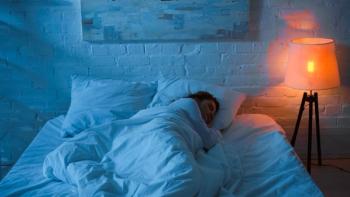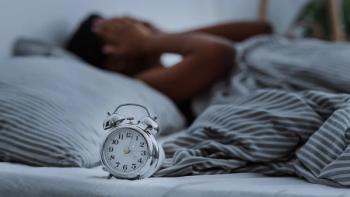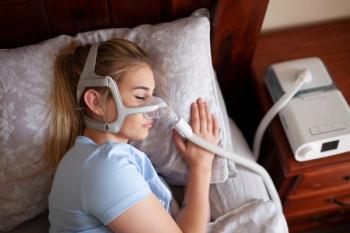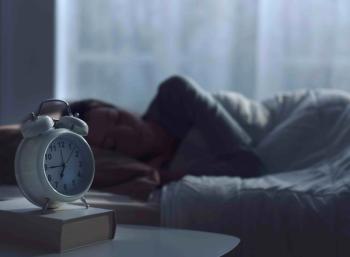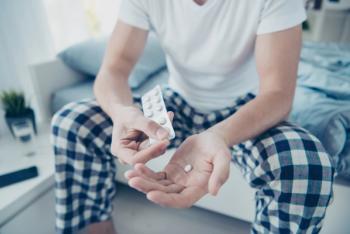
Stimulus Control Might Be an Effective Insomnia Treatment, Studies Suggest
It is reasonable to view stimulus control as an effective insomnia treatment, particularly for sleep initiation problems.
It is practical to see stimulus control as an effective treatment for
Stimulus control is usually viewed as an evidence-based treatment for insomnia, but it has not been comprehensively reviewed with modern review and meta-analytic techniques.
The current study’s target was to perform a systematic review and meta-analysis of trials that scrutinize the efficacy of stimulus control for insomnia.
Approximately 10% of the general population meets the symptom criteria for insomnia disorder, and the condition is usually chronic for multiple years, with a high disease burden, like decline in cognitive abilities, mood swings, and comorbid health problems like depression and heart disease.
First, a systematic search for qualified articles and dissertations was conducted in 6 online bibliographic databases. The search included 11 studies, with most published between 1978 and 1998. They were randomized controlled and experimental studies in adults, comparing stimulus control for insomnia with passive and active comparators and reviewing insomnia symptoms as outcomes.
Then, a random effects model was used to define the standardized mean difference Hedge’s g at post-treatment and follow-up for 3 sleep diary criteria: the number of awakenings, sleep onset latency, and total sleep time. A heterogeneity test was conducted, forest plots were created, publication bias was estimated, and the study quality was evaluated. In the identified trials, stimulus control developed in small to large improvements on sleep onset latency and total sleep time, relative to passive comparators (g = 0.38-0.85).
The improvements following stimulus control were negligible compared with active comparators (g = 0.06-0.30). Even though methodological uncertainties were seen in the included trials, stimulus control seems to be an efficacious insomnia treatment when compared with passive comparators and with similar effects to active comparators.
“Compared with previous reviews, the current investigation extends the quantitative assessment of stimulus control as an evidence-based treatment as it compared stimulus control with passive versus active comparators, excluded trials that combined stimulus control with sleep hygiene, and included both night-time and daytime symptoms (Edinger et al., 2021; Morin et al., 1999, 2006),” said the researchers.
A provisional summary would be needed to conclude that stimulus control has a slightly larger effect on 2 key outcomes than other cognitive and behavioral interventions, but a comparison is not possible on other important outcomes, like Insomnia Severity Index and objective sleep assessment.
The researchers recommended that stimulus control be used in clinical settings for patients with insomnia disorder, and that additional research is dedicated to exploring the efficacy and implementation of stimulus control.
They also recommended comparing the effect sizes with other relevant estimates in the literature to understand the significance of the effect sizes.
“More robust studies are, however, warranted before stronger conclusions are possible to infer,” said the authors.
Since the current study did not estimate the efficacy of stimulus control in a dismantling study or network meta-analysis, comparing different components and/or combinations of components of cognitive behavioral therapy for insomnia, the conclusion about the efficacy of stimulus control needs to be interpreted with care.
To improve the understanding of stimulus control as a form of treatment, several important areas that future research could focus on are to employ active comparators, ad hoc power calculations, samples from health care settings, a variety of insomnia types, and more.
Finally, the present investigation is the first exhaustive systematic review and meta-analysis of the efficacy of stimulus control for insomnia, and the present findings show that stimulus control, relative to passive comparators, generate large effects on sleep onset latency (SOL; g = 0.85-0.87) and small effects, though they were non-significant on total sleep time (TST) (g = 0.38). Stimulus control resulted in non-significant improvements, i.e., a negligible enhancement on SOL at post-treatment, a small worsening on SOL at follow-up, and negligible improvements on TST and number of awakenings at post-treatment compared with previous reviews. The effect of stimulus control on TST was small and non-significant.
Some limitations were present in this study. There were methodological issues in the trials exploring efficacy for stimulus control, a small number of studies, a limited number of study participants and outcomes, and other methodological features of the trials obstruct the possibility of drawing robust conclusions regarding the efficacy and generalizability of stimulus control.
Reference
Jansson-Fröjmark M, Nordenstam L, Alfonsson S, Bohman B, Rozental A, Norell-Clarke A. Stimulus control for insomnia: a systematic review and meta-analysis. J Sleep Res. Published online July 27, 2023. doi:10.1111/jsr.14002
Newsletter
Stay ahead of policy, cost, and value—subscribe to AJMC for expert insights at the intersection of clinical care and health economics.
